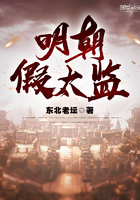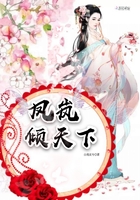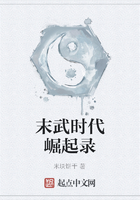Doubtless, as may be noticed in passing, much of the tendency on the part of our shipmen in this period to self-help in offence as well as in defence, was due to the fact that the mercantile navy was frequently employed in expeditions of war, vessels and men being at times seized or impressed for the purpose by order of the Crown. On one of these occasions the port of Dartmouth, whence Chaucer at a venture ("for aught Iwot") makes his "Shipman" hail, is found contributing a larger total of ships and men than any other port in England. For the rest, Flanders was certainly still far ahead of her future rival in wealth, and in mercantile and industrial activity; as a manufacturing country she had no equal, and in trade the rival she chiefly feared was still the German Hansa.
Chaucer's "Merchant" characteristically wears a "Flandrish beaver hat;"and it is no accident that the scene of the "Pardoner's Tale," which begins with a description of "superfluity abominable," is laid in Flanders. In England, indeed the towns never came to domineer as they did in the Netherlands. Yet, since no trading country will long submit to be ruled by the landed interest only, so in proportion as the English towns, and London especially, grew richer, their voices were listened to in the settlement of the affairs of the nation. It might be very well for Chaucer to close the description of his "Merchant" with what looks very much like a fashionable writer's half sneer:--Forsooth, he was a worthy man withal;
But, truly, I wot not how men him call.
Yet not only was high political and social rank reached by individual "merchant princes," such as the wealthy William de la Pole, a descendant of whom is said (though on unsatisfactory evidence) to have been Chaucer's grand-daughter, but the government of the country came to be very perceptibly influenced by the class from which they sprang. On the accession of Richard II, two London citizens were appointed controllers of the war-subsidies granted to the Crown; and in the Parliament of 1382 a committee of fourteen merchants refused to entertain the question of a merchants' loan to the king. The importance and self-consciousness of the smaller tradesmen and handicraftsmen increased with that of the great merchants. When in 1393 King Richard II marked the termination of his quarrel with the City of London by a stately procession through "new Troy," he was welcomed, according to the Friar who has commemorated the event in Latin verse, by the trades in an array resembling an angelic host; and among the crafts enumerated we recognise several of those represented in Chaucer's company of pilgrims--by the "Carpenter," the "Webbe" (Weaver), and the "Dyer," all clothed in one livery Of a solemn and great fraternity.
The middle class, in short, was learning to hold up its head, collectively and individually. The historical original of Chaucer's "Host"--the actual Master Harry Bailly, vintner and landlord of the Tabard Inn in Southwark, was likewise a member of Parliament, and very probably felt as sure of himself in real life as the mimic personage bearing his name does in its fictitious reproduction. And he and his fellows, the "poor and simple Commons"--for so humble was the style they were wont to assume in their addresses to the sovereign,--began to look upon themselves, and to be looked upon, as a power in the State. The London traders and handicraftsmen knew what it was to be well-to-do citizens, and if they had failed to understand it, home monition would have helped to make it clear to them:--Well seemed each of them a fair burgess, For sitting in a guildhall on a dais.
And each one for the wisdom that he can Was shapely for to be an alderman.
They had enough of chattels and of rent, And very gladly would their wives assent;And, truly, else they had been much to blame.
It is full fair to be yclept madame, And fair to go to vigils all before, And have a mantle royally y-bore.
The English State had ceased to be the feudal monarchy --the ramification of contributory courts and camps--of the crude days of William the Conqueror and his successors. The Norman lords and their English dependants no longer formed two separate elements in the body politic. In the great French wars of Edward III, the English armies had no longer mainly consisted of the baronial levies. The nobles had indeed, as of old, ridden into battle at the head of their vassals and retainers; but the body of the force had been made up of Englishmen serving for pay, and armed with their national implement, the bow--such as Chaucer's "Yeoman"carried with him on the ride to Canterbury:--A sheaf of peacock arrows bright and keen Under his belt he bare full thriftily.
Well could he dress his tackle yeomanly:
His arrows drooped not with feathers low, And in his hand he bare a mighty bow.
The use of the bow was specially favoured by both Edward III and his successor; and when early in the next century the chivalrous Scottish king, James I (of whom mention will be made among Chaucer's poetic disciples) returned from his long English captivity to his native land, he had no more eager care than that his subjects should learn to emulate the English in the handling of their favourite weapon. Chaucer seems to be unable to picture an army without it, and we find him relating how, from ancient Troy,--Hector and many a worthy wight out went With spear in hand, and with their big bows bent.
No wonder that when the battles were fought by the people itself, and when the cost of the wars was to so large an extent defrayed by its self-imposed contributions, the Scottish and French campaigns should have called forth that national enthusiasm which found an echo in the songs of Lawrence Minot, as hearty war-poetry as has been composed in any age of our literature. They were put forth in 1352, and considering the unusual popularity they are said to have enjoyed, it is not impossible that they may have reached Chaucer's ears in his boyhood.















